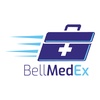The medical industry is constantly evolving, and with those changes come shifts in operational strategies. One such change is the growing trend of outsourcing medical billing. By delegating the intricate billing process to dedicated professionals, many healthcare establishments are seeing a reduction in costs and a significant improvement in collections. This article delves into how outsourcing can make this possible and why it's an advantageous move for many practices.
- Reducing Overhead Costs
- Infrastructure Savings: Establishing an in-house billing department requires a significant investment in technology, software, and office space. By outsourcing, clinics and practices can bypass these initial setup costs and ongoing maintenance fees.
- Staffing Costs: Hiring, training, and maintaining a full-time billing staff can be expensive. Outsourcing eliminates the need for salaries, benefits, and ongoing training programs, allowing clinics to allocate resources elsewhere.
- Avoiding Errors: Mistakes in billing can lead to claim rejections and payment delays. Professional billing services have rigorous quality control processes that reduce errors, which means practices don't bear the financial consequences of those mistakes.
- Improving Revenue Collection
- Faster Turnaround: Specialized billing agencies have streamlined processes to ensure that claims are submitted promptly, leading to quicker reimbursements.
- Denial Management: With expert knowledge of billing codes and regulations, outsourced services can skillfully navigate denials, ensuring that practices receive due payments.
- Patient Communications: Handling patient queries regarding bills can be time-consuming. Outsourced agencies take on this responsibility, maintaining professionalism and ensuring patient satisfaction.
- Focusing on Patient Care
With the administrative burden of billing taken off their shoulders, healthcare providers can concentrate on their primary objective: patient care. This not only improves the quality of service but also enhances patient trust and satisfaction.
- Staying Updated with Industry Changes
Medical billing codes and regulations are frequently updated. Outsourced agencies ensure they are always abreast of these changes, eliminating the need for practices to spend time and resources on training staff for new updates.
- Scalability
As a practice grows, its billing needs evolve. Outsourcing provides the flexibility to scale services according to the clinic's needs without the hassle of hiring more employees or investing in additional infrastructure.
- Data Security
Professional medical billing companies invest heavily in securing their systems, ensuring that patient data remains confidential and adhering to all regulatory standards. This level of security might be challenging for individual practices to achieve without significant investment.
Conclusion
Outsourcing medical billing is more than just a cost-saving measure; it's a strategic move that allows clinics and healthcare providers to enhance service quality, boost revenue, and focus on core competencies. By entrusting this essential function to experts, medical establishments are positioning themselves for growth, efficiency, and an unwavering focus on patient care.

No comments yet